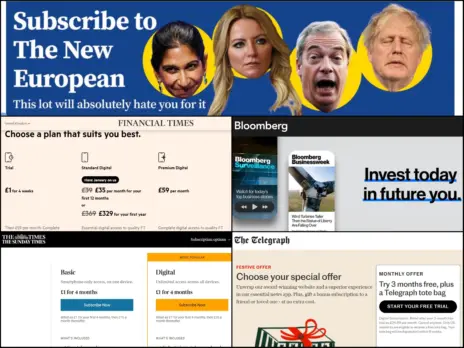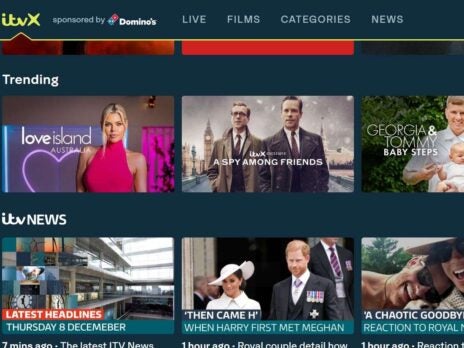
Last year’s annual survey of members of the Association of Online Publishers found that almost three quarters were planning to introduce a charge for online content.
But consumer and business-to-business publishers looking to increase their digital revenue are often left asking: what sort of approach should we take?
Press Gazette talked to Toby Bray, managing director of MoneyWeek, about his magazine’s implementation of a paywall and the direction it will take next.
In terms of print circulation MoneyWeek’s paywall strategy appears to have paid off, in the second half of 2009 it recorded its tenth successive circulation increase – up 10.4 per cent to 42,953.
For an in-depth report into how online paywalls are paying off for some publishers, see the March edition of Press Gazette magazine.
Subscribe to Press Gazette magazine
When was the MoneyWeek paywall launched?
When we first started publishing our magazine content online in 2005
What content is behind it and what is free?
Sixty per cent of the magazine content stays behind the subscriber paywall for one month – this is cover stories and in-depth articles.
The remaining 40 per cent, the free content, is the magazine’s latest news and comment including our daily email, Money Morning, and our blog.
After month after publication of the magazine the restricted content also becomes available for free so that it can be indexed by search engines.
Has it always been like this or have you adapted it? If so why?
We started out by keeping all magazine content behind the paywall for three months. Then we decided to develop a greater search presence and [drive] more traffic, so we gradually started releasing more of the magazine content online for free, immediately after publication.
Our current position achieved our aims of increasing our search presence and the volume of traffic to the site.
However, we have always valued our content and, most importantly, our subscribers, so we won’t be increasing the proportion of free content any further.
Any plans to change it in the future? What trends are you looking out for that might affect this?
We like the FT.com model which gives access to a certain number of articles per month across the entire site. We’ll be looking to implement a similar approach this year.
It’s interesting to see the current move towards payment models for the news sites. But this won’t dramatically affect what we do, since we have always required readers to take out a subscription to read the bulk of our content.
We have always been focussed on maintaining and building our subscriber base – 99 per cent of our magazine readers are subscribers.
We have multiplied our paid circulation by five in the last six years – from under 8,000 to 43,000 – so our current model is working well, and we see no reason to dramatically change it.
We also have a digital version of the magazine on our website, and we do have a very small proportion (mainly overseas) of online-only subscribers.
Email pged@pressgazette.co.uk to point out mistakes, provide story tips or send in a letter for publication on our "Letters Page" blog







